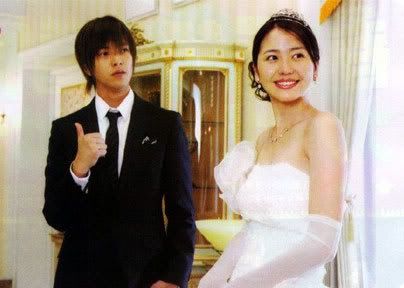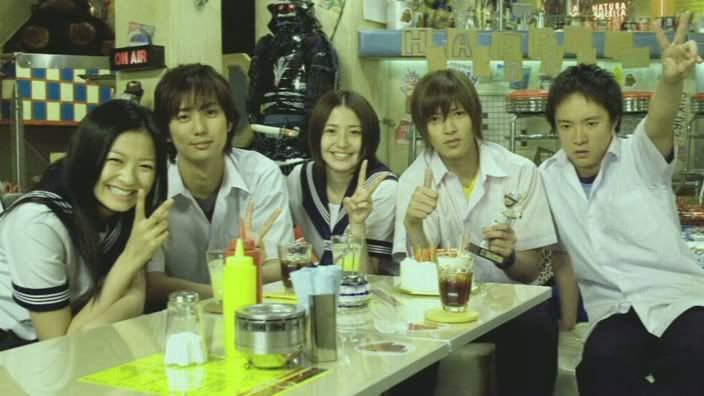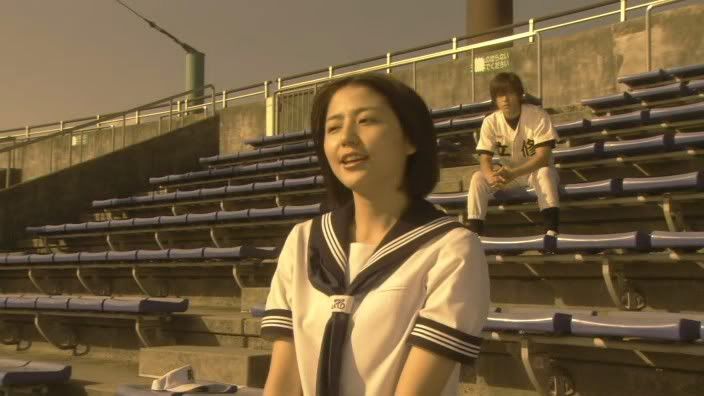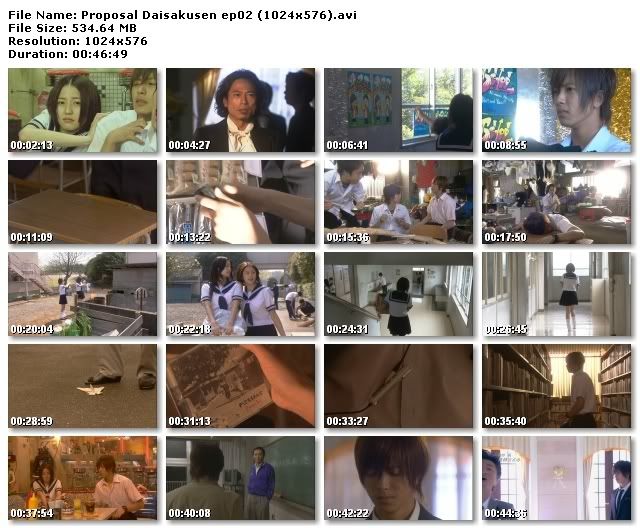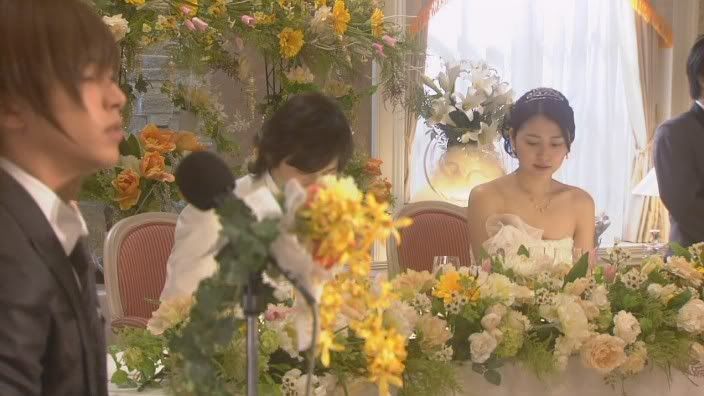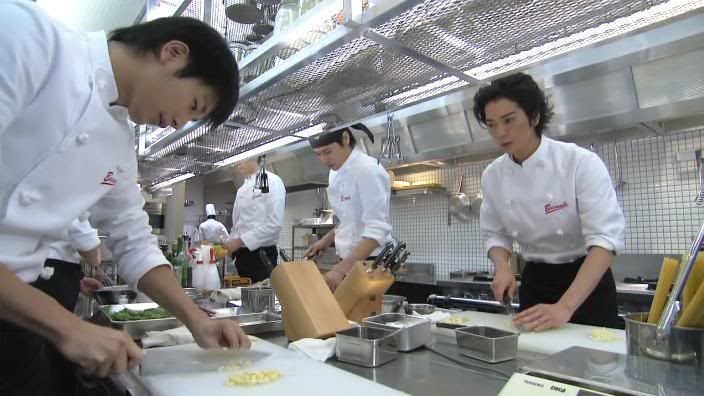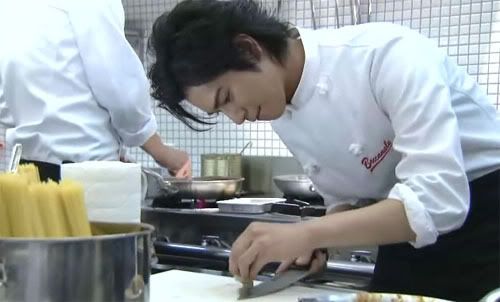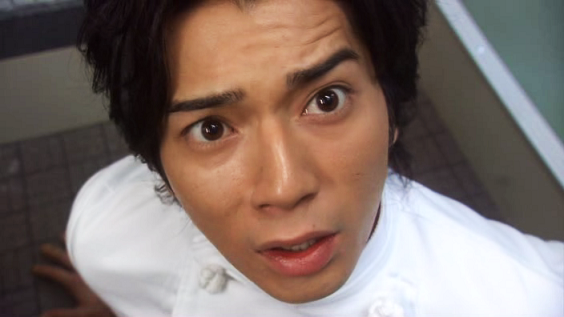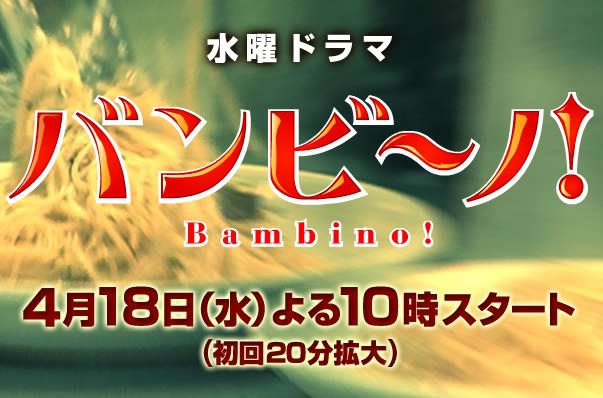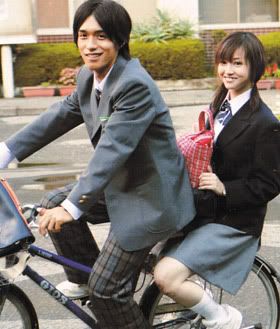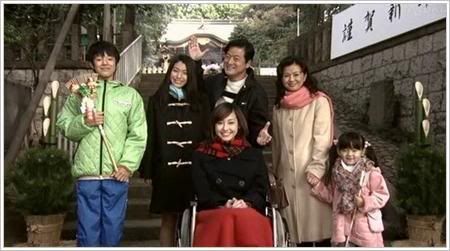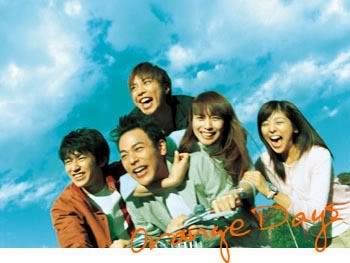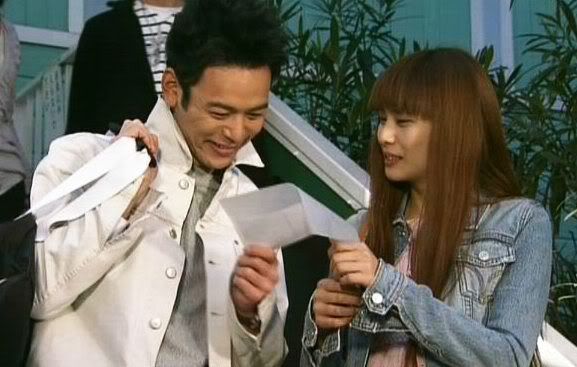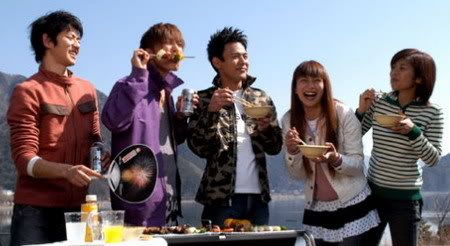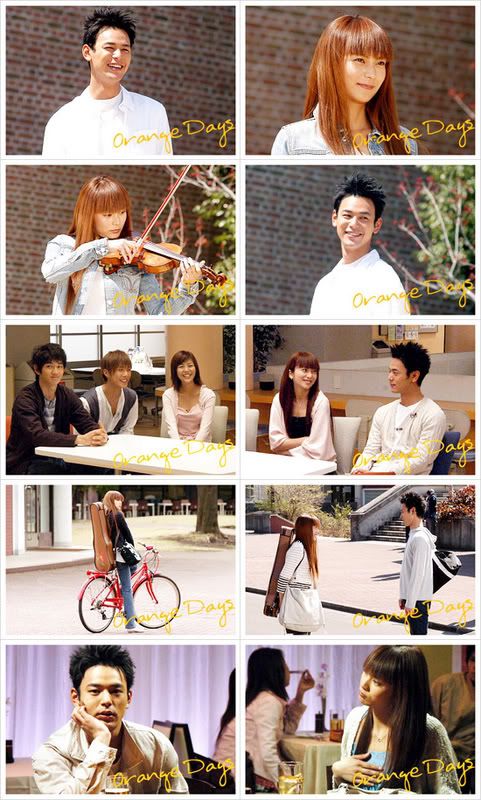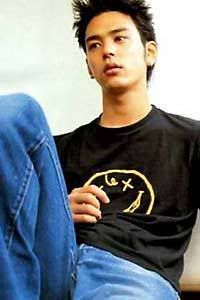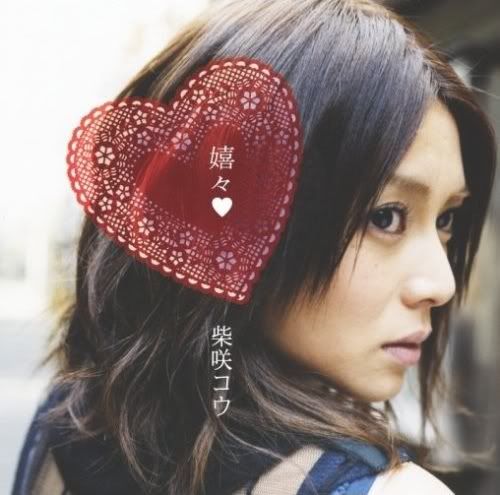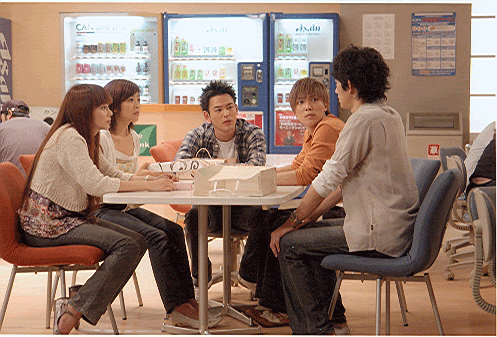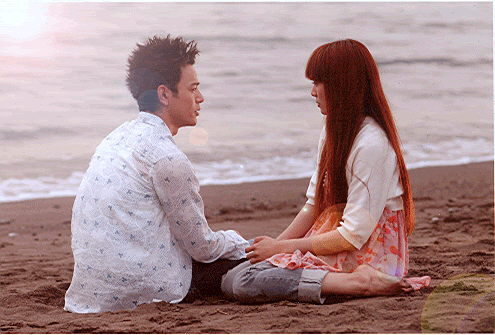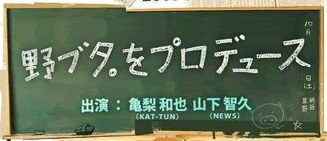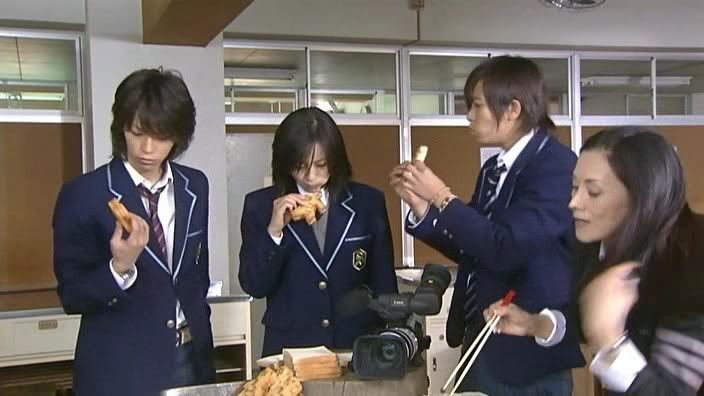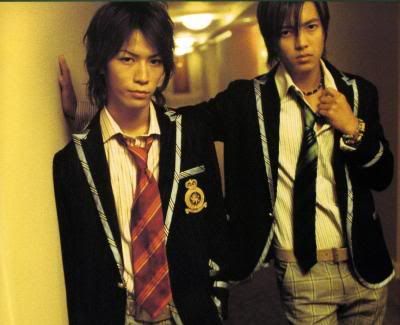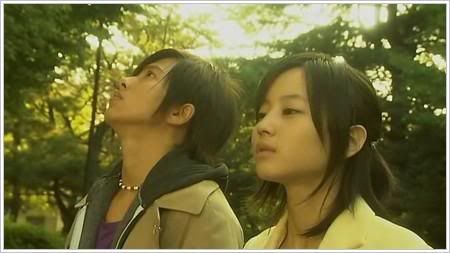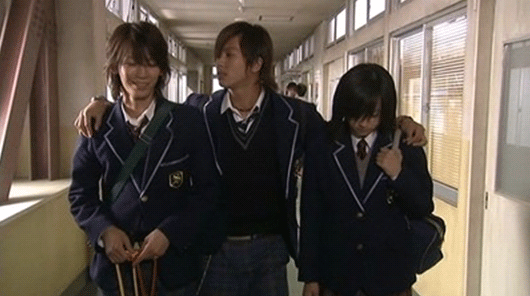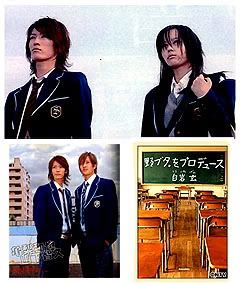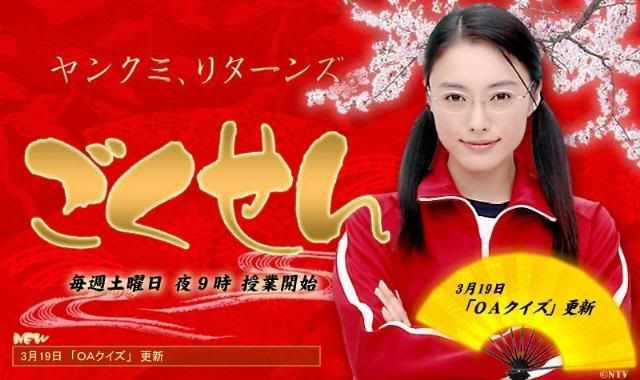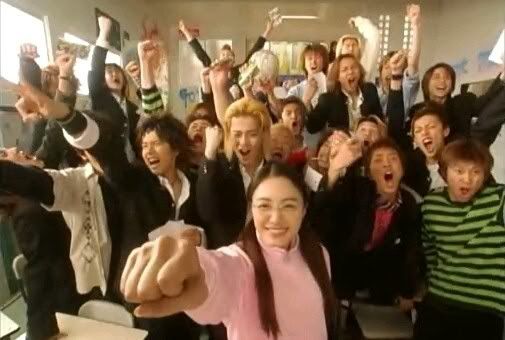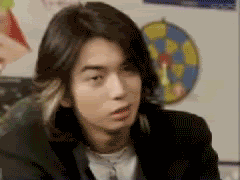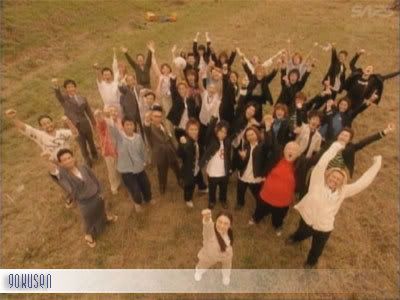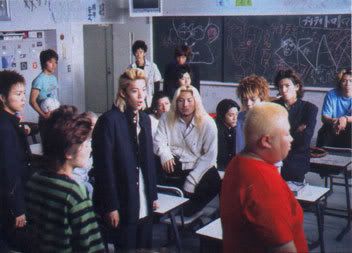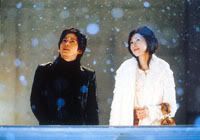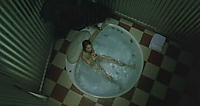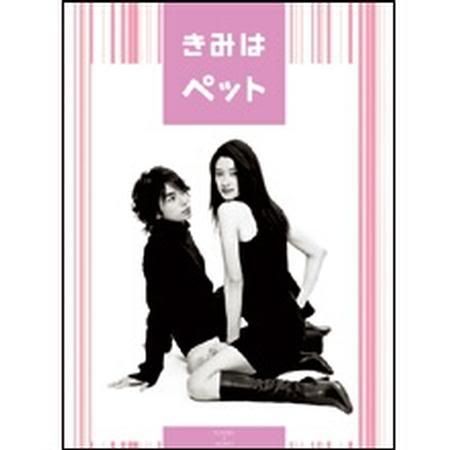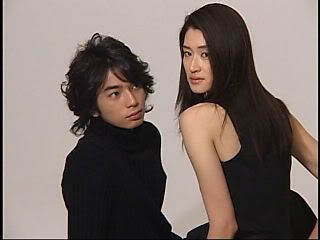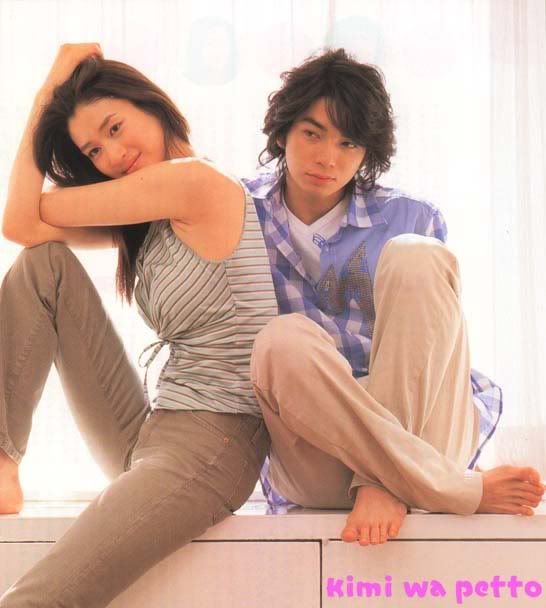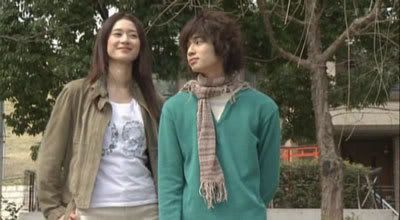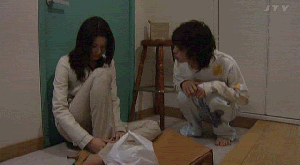Dragon Zakura
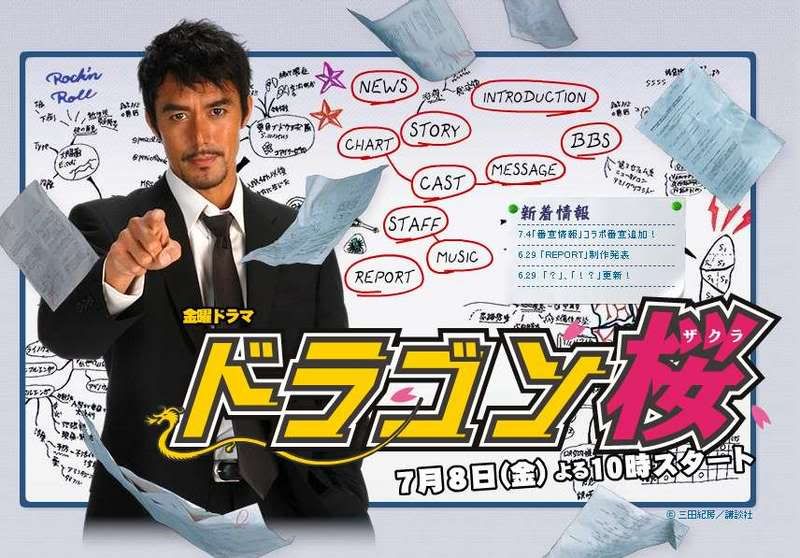
Cast:
Hiroshi Abe - Kenji Sakuragi
Kyoko Hasegawa - Mamako Ino
Tomohisa Yamashita - Yuusuke Yajima
Masami Nagasawa - Naomi Mizuno
Teppei Koike - Hideki Ogata
Yui Aragaki - Yoshino Kousaka
Akiyoshi Nakao - Ichirou Okuno
Saeko - Maki Kobayashi
I never knew that another school-dream-teacher-student Jdorama would best out Gokusen and GTO.
Perhaps most of us are diluted with too many 'make your dreams come true' harangue and preaching through hackneyed stories we watch in television. What sets this particular drama apart from the rest is the focus on EXAMS/TESTS. I was really involved in the story because I, myself, disagree with the concept of having one-time written tests given out to students to judge their capabilities and designate their future. The progress of the story is manipulated by a lawyer/demigod named Sakuragi Kenji, a former racer-gangster, caught up with the cruelties of the society to solve the case of Ryuuzan high for him to earn money and keep his job.
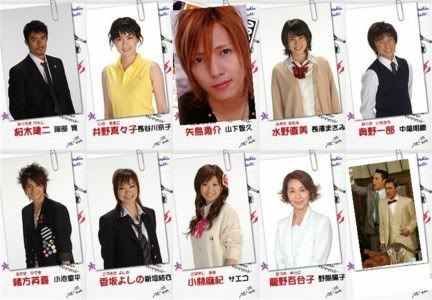
Oh, well it still involves delinquent students just like in Gokusen and GTO. Nonetheless, the fun does not stop with making these 'bad seeds' eventually good. In Gokusen, it was more of proclaiming self-integrity and dignity, in GTO, it was resolving family issues, this drama focuses on one's self. And what better way to tackle thyself than to use the symbolism of tests. All the students have an average of 36 out of a 100. Their school propagates mediocrity and indifference to pursue a brighter future. But Sakuragi diverts their predestined future into the exact opposite: making 6 students pass the Tokyo University entrance exam. All they have got is a year to STUDY.
One of the reasons why I like the drama is the cleverness of Sakuragi to juggle with the real and the ideal. He kept telling the students THEY will pass the exam even if I, myself, do not believe they could. Reality-wise it is really impossible. But, hey this is a work of fiction, I'm sure they will make it happen. But the drama left me grappling with my own anticipation and expectation with the turn of events. You will never know what is going to happen: will Sakuragi's sweet-sounding promises really happen, will he say the same old sh*t about fulfilling your dreams and making them happen, will the students really pass, etc. I am very much surprised with each decision, with each plan and consequence. Most of the time, I find myself confused whether to agree or disagree with what Sakuragi firmly believes in. He positions himself in a quicksand of irony: he kept saying the world is harsh, the society does not show kindness and sympathy, we should always be cold and dispel the wall of emotions but every scene manifests care, gentleness and frustration.
Just like in GTO, Sakuragi is calm and courageous. But his actions are not spontaneous, they are planned in advance for a greater and a farther consequence. My favorite scene would be their mock test for Todai. All of them did not make it. And Sakuragi revealed he knew that from the start. But the important thing is to focus on one's goal. The mock test is another wall that one has to break through.
Japanese are fond of using great great imagery in their dramas. I really gaped at the scene wherein Sakuragi and Mizuno talked about two bottles: 1.5 L and a 500 ml. Both has the same amount of carbon dioxide and oxygen. Mizuno is about to quit the special class because of her mother but after realizing the beauty of hope through the aforementioned image, she regained her willful self and did self-study. There are 100 ways to climb a mountain.
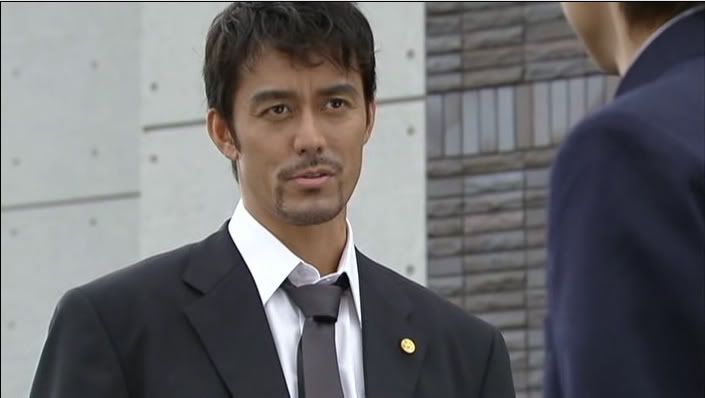
As I've said, I really like the drama's focus on the Todai exam. Through the exam, the 6 students learned more than what should be learned from books. True, Sakuragi always put emphasis on passing the exam because it defines whether they made it or not. It is a pass or fail thing. No other way. But in the end, he indirectly crushes the long-built fear of success being defined as passing the exam.
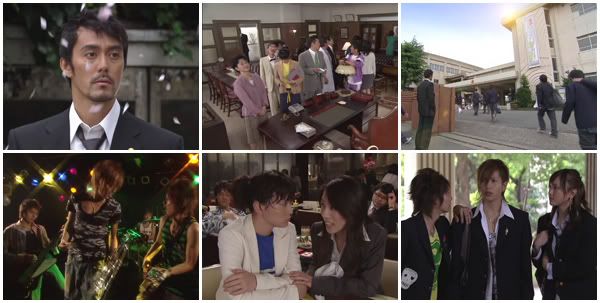
To be honest, I'm really at a loss doing this review. I cannot clearly put into words the essentials of the drama. My advice, watch and give it a shot. I'll do the same, the second time around.
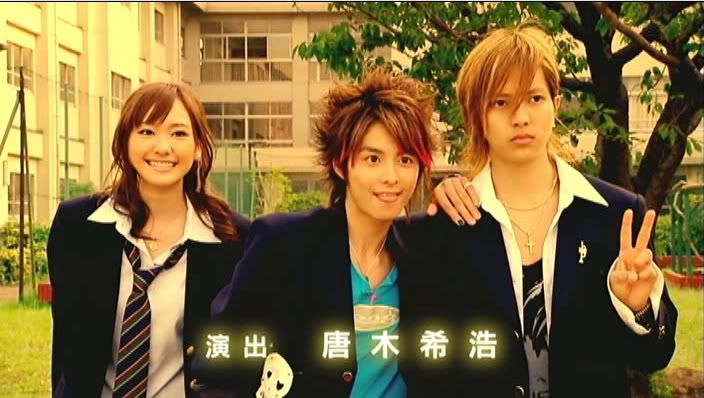
spoiler: even if the tandem of Yamapi and Masami is present in the drama, you might be disappointed with what's going to happen to the both of them in the end :-)

